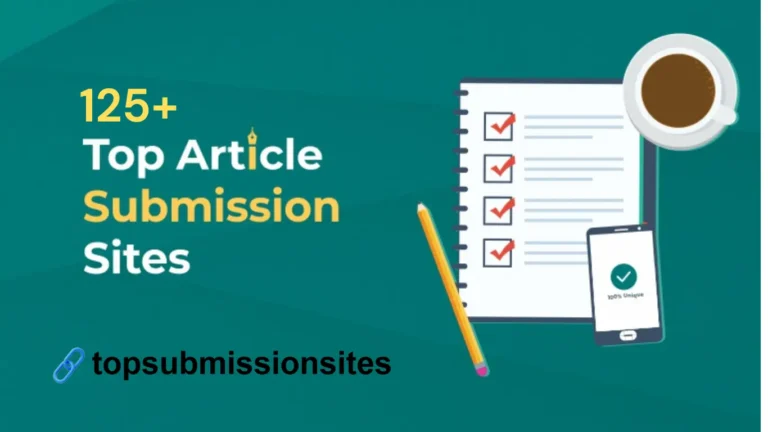What is Keyword ? A Beginner's Guide to Mastering SEO [2025]

Keyword
If you are new to the world of online marketing and SEO, you might wonder, “What is keyword?” This guide will provide you with everything you need to know about keywords, how they work in SEO, and why they are so important. By the end of this article, you will have a solid understanding of what a keyword is and how it can help improve your search engine optimization efforts.
What is Keyword?
The term “keyword” refers to a word or phrase that people type into search engines when looking for specific information, products, or services. Keywords play a central role in SEO (search engine optimization) because they connect users with the content they are searching for. Understanding “what is keyword” is the first step to mastering SEO and driving organic traffic to your website.
Why Are Keywords Important in SEO?
Keywords are the foundation of SEO. When you know “what is keyword,” you realize that keywords are the bridge between what users search for and the content you create. Incorporating the right keywords into your website content allows search engines to rank your pages higher in search results, making it easier for potential customers to find you.
Using “what is keyword” effectively in your content ensures that search engines understand the relevance of your content to the user’s query. The better the match between your content and the user’s search intent, the higher your chances of ranking well on search engine results pages (SERPs).
Types of Keywords
To fully grasp “what is keyword,” it is essential to know the different types of keywords:
- Short-Tail Keywords:
- Definition: Short and general keyword phrases, usually consisting of one to three words.
- Example: “shoes,” “travel,” “fitness.”
- Use Case: Attracts a broad audience but tends to have high competition.
- Long-Tail Keywords:
- Definition: Longer and more specific keyword phrases, often containing three or more words.
- Example: “best running shoes for beginners,” “healthy vegetarian recipes for dinner.”
- Use Case: Targets a more specific audience with potentially lower competition.
- LSI Keywords (Latent Semantic Indexing):
- Definition: Words or phrases related to the main keyword, providing context and depth to the content.
- Example: For “apple,” LSI keywords could include “fruit,” “orchard,” or “health benefits.”
- Use Case: Enhances content relevance and helps search engines understand context.
- Commercial Intent Keywords:
- Definition: Keywords indicating an intent to purchase a product or service.
- Example: “buy running shoes online,” “discounted travel packages.”
- Use Case: Valuable for e-commerce websites and businesses focused on conversions.
- Informational Keywords:
- Definition: Keywords used to gather information on a specific topic.
- Example: “how to tie a tie,” “benefits of yoga.”
- Use Case: Targets users seeking knowledge, often used in blog posts and educational content.
- Navigational Keywords:
- Definition: Keywords used to find a particular website or page.
- Example: “Facebook login,” “Nike official website.”
- Use Case: Important for brand recognition and directing users to specific destinations.
- Transactional Keywords:
- Definition: Keywords indicating an intent to perform an online transaction.
- Example: “book a flight,” “sign up for a webinar.”
- Use Case: Relevant for businesses offering services or products with a clear call to action.
- Brand Keywords:
- Definition: Keywords specific to a particular brand or company.
- Example: “Apple iPhone,” “Nike sneakers.”
- Use Case: Important for brand visibility and attracting users already familiar with a brand.
- Geo-Targeted Keywords:
- Definition: Keywords including a specific location or region.
- Example: “restaurants in New York,” “plumber near me.”
- Use Case: Useful for businesses targeting local audiences or providing location-specific services.
- Seasonal Keywords:
- Definition: Keywords related to specific seasons, holidays, or events.
- Example: “summer fashion trends,” “Christmas gift ideas.”
- Use Case: Ideal for time-sensitive promotions and content.
- Product Keywords:
- Definition: Keywords specifically related to a product.
- Example: “iPhone 13 review,” “best running shoes for women.”
- Use Case: Essential for e-commerce sites and product-focused content.
- Industry-Specific Keywords:
- Definition: Keywords tailored to a particular industry or niche.
- Example: “digital marketing strategies,” “blockchain technology.”
- Use Case: Targets a specialized audience within a specific field.
- Action Keywords:
- Definition: Keywords that encourage users to take a specific action.
- Example: “download free ebook,” “subscribe to newsletter.”
- Use Case: Drives engagement and conversions.
- Competitor Keywords:
- Definition: Keywords related to competitors’ brands or products.
- Example: “alternative to [competitor brand],” “[competitor] vs [your brand].”
- Use Case: Targets users considering or comparing similar products or services.
- DIY Keywords (Do It Yourself):
- Definition: Keywords indicating a user’s intent to learn or perform a task independently.
- Example: “DIY home decor ideas,” “how to bake a cake from scratch.”
- Use Case: Relevant for instructional and tutorial content.
- Problem-Solving Keywords:
- Definition: Keywords related to addressing specific issues or challenges.
- Example: “fix a leaky faucet,” “reduce stress tips.”
- Use Case: Targets users actively seeking solutions to problems.
- Tutorial Keywords:
- Definition: Keywords indicating a user’s interest in step-by-step guides or tutorials.
- Example: “Photoshop tutorial for beginners,” “learn to play guitar.”
- Use Case: Ideal for creating instructional and educational content.
- Comparison Keywords:
- Definition: Keywords used when users are comparing different options.
- Example: “[product] vs [alternative],” “best budget smartphones 2023.”
- Use Case: Valuable for content that helps users make informed decisions.
- Evergreen Keywords:
- Definition: Keywords that remain relevant over an extended period.
- Example: “healthy eating tips,” “basic photography techniques.”
- Use Case: Suitable for creating timeless content with lasting value.
- Conversational Keywords:
- Definition: Keywords reflecting natural language and conversational queries.
- Example: “What are the best exercises for weight loss?” “How does solar energy work?”
- Use Case: Aligns with the growing popularity of voice search and natural language queries.
How to Find the Right Keywords
Knowing “what is keyword” is just the beginning. finding the right keywords is the next step. Here are some tips to help you find the best keywords for your SEO strategy:
- Use Keyword Research Tools: Tools like Google Keyword Planner, Ahrefs, and SEMrush can help you discover relevant keywords.
- Analyze Competitors: Look at the keywords your competitors are using to understand what is driving traffic to their websites.
- Focus on Search Intent: Understand whether users are looking for information, products, or services and choose keywords that match their intent.
- Look for Long-Tail Keywords: Long-tail keywords are often easier to rank for and can drive highly targeted traffic.
- Check Search Volume and Competition: Use tools to analyze how often a keyword is searched and how competitive it is.
How to Use Keywords in SEO
Once you understand “what is keyword” and have selected your keywords, the next step is to incorporate them effectively into your content. Here are some tips:
- Use Keywords in Titles: Your title should include the main keyword, like “What is Keyword? A Beginner’s Guide to Mastering SEO.”
- Include Keywords in Headings: Use your keywords in H1, H2, and H3 tags to help search engines understand the structure of your content.
- Incorporate Keywords Naturally: Avoid keyword stuffing. Instead, use your keywords naturally within the content to make it readable and user-friendly.
- Optimize Meta Descriptions: Add your primary keyword in the meta description to improve click-through rates.
- Add Keywords to URLs: Make sure your URL includes your target keyword for better SEO performance.
- Use Keywords in Image Alt Text: Describe images using your keywords to help with image SEO.
Common Mistakes to Avoid
When learning “what is keyword,” it is essential to avoid these common mistakes:
- Keyword Stuffing: Overusing keywords can harm your SEO and make your content unreadable.
- Ignoring Search Intent: Choosing keywords without considering what users are looking for can lead to poor results.
- Neglecting Mobile Users: Make sure your content is optimized for mobile devices, as most searches now occur on mobile.
- Using Irrelevant Keywords: Focus on keywords that align with your content and audience.
- Forgetting About Updates: SEO trends change, so keep updating your keywords and strategies.
The Future of Keywords in SEO
The world of SEO is constantly evolving, but “what is keyword” remains a fundamental question. As search engines become more advanced, the focus is shifting toward understanding user intent and context. Voice search, AI, and machine learning are shaping how keywords are used, making it even more critical to stay updated on the latest trends.
Conclusion
So, “what is keyword?” Simply put, keywords are the backbone of SEO. They help search engines understand your content and connect you with your audience. By learning “what is keyword” and applying effective keyword strategies, you can improve your website’s visibility, attract more traffic, and achieve your online goals.
Remember to use “what is keyword” and related terms strategically throughout your content, titles, and headings. With the right approach, you can master SEO and make your website stand out in search engine results. Start optimizing your content today, and let “what is keyword” guide your way to success.
Submitting your website to high-quality platforms can improve your visibility and help you rank higher. Here is a list of top submission sites for SEO





I do trust all the ideas youve presented in your post They are really convincing and will definitely work Nonetheless the posts are too short for newbies May just you please lengthen them a bit from next time Thank you for the post
Thank you for the thoughts you gave by reading our blog. we will definitely work on it
Excellent blog here Also your website loads up very fast What web host are you using Can I get your affiliate link to your host I wish my web site loaded up as quickly as yours lol
Thanks for reading our blog. Whatever problem you may have, we will present it to you for improvement.